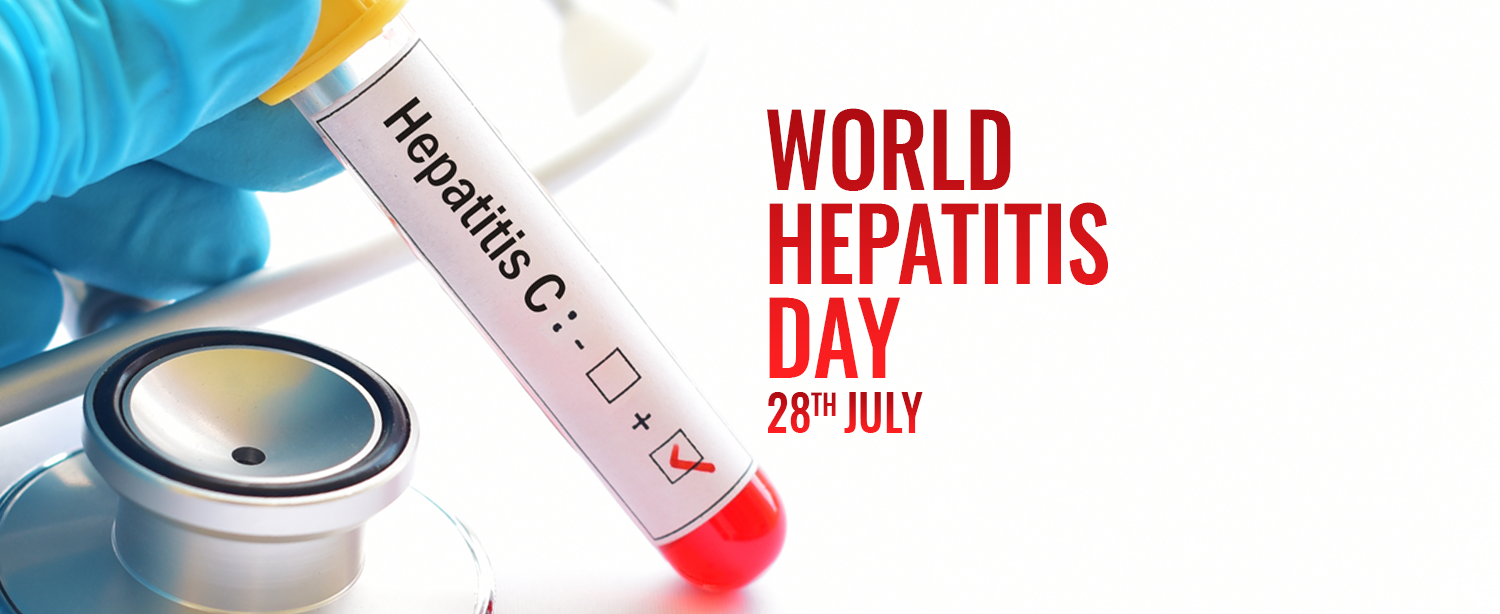World Hepatitis Day is observed on 28th July every year. Hepatitis refers to an inflammatory liver condition. This is commonly caused by a viral infection, but there are other possible causes of hepatitis. These include autoimmune hepatitis and hepatitis that occurs as a secondary result of medications, drugs, toxins, and alcohol.
Your liver performs many critical functions for your body including:
- Bile production, which is essential to digestion.
- Filtering of toxins from your body.
- Excretion of bilirubin, cholesterol, hormones, and drugs.
- Breakdown of carbohydrates, fats, and proteins.
- Activation of enzymes.
- Storage of glycogen (a form of sugar), minerals, and vitamins (A, D, E, and K).
- Synthesis of blood proteins, such as albumin.
- Synthesis of clotting factors.
Types
Hepatitis has several different types, but the symptoms of each are similar. Hepatitis can take acute or chronic forms. The three main types of hepatitis are known as hepatitis A, B, and C. Each is caused by a different virus.
Hepatitis A
It is often mild, and most patients make a full recovery, after which they are immune and therefore protected from the virus in the future. However, if it progresses, symptoms can be severe or life-threatening. There is a vaccination available against this virus.
The virus most commonly spreads when you eat or drink something contaminated with faecal matter. There is no specific treatment for HAV. The doctor will advise the patient to abstain from alcohol and drugs during the recovery.
Hepatitis B
Hepatitis B is caused by the hepatitis B virus (HBV) and is spread through contact with infected blood, semen, and some other body fluids. It can be a sexually transmitted disease (STD).
The liver of a person infected with hepatitis B swells. This can cause severe damage and the infection may become chronic too. This can lead to complications, including scarring of the liver, or cirrhosis. It may also cause a type of cancer known as hepatocellular carcinoma. There is a safe and effective vaccine that can protect against Hepatitis B virus (HBV).
A patient with HBV needs to rest and abstain completely from alcohol. The doctor may prescribe antiviral suppressive therapies.
Hepatitis C
Hepatitis C virus (HCV) can lead to liver damage and swelling. Around 1 in 4 people with HCV get cirrhosis, and this can lead to liver cancer. A person contracts the HCV by coming into contact with infectious fluids and secretions from someone else who is already infected.
There is no vaccine to prevent HCV, but treatment can cure it. A combination of therapies is now available to treat the hepatitis C virus based on its subtype. These treatments target viral replication and prevent the virus from being able to reproduce. When taken correctly, the cure rate is very high.
Symptoms
Many people with hepatitis experience either mild or no symptoms. When symptoms appear, they can do so from 15 to 180 days after infection. This rule is common for all types of hepatitis.
Acute Hepatitis
The initial phase of hepatitis is called the acute phase. The symptoms are similar to mild flu, and may include:
- Diarrhoea.
- Fatigue.
- Nausea and vomiting.
- Weight loss.
- Jaundice.
- Loss of appetite.
- Mild fever.
- Muscle or joint aches.
- Slight abdominal pain.
The acute phase is not usually dangerous, however, it may progress to a chronic infection. This is most likely with HBV or HCV.
As the disease progresses, chronic hepatitis can lead to progressive liver failure, resulting in jaundice, swelling of the lower extremities, and blood in the faeces or vomit.
Prevention
Hepatitis can be dangerous and difficult to treat, so people are advised to take precautions against any possible infection.
Preventing hepatitis A
The following steps can help avoid infection:
- Wash hands with soap after using the bathroom.
- Only consume food that has just been cooked.
- Only drink boiled water.
- Get vaccinated.
Preventing hepatitis B
To minimize the risk of transmission:
- Practice safe sex.
- Only use previously unused, clean needles.
- Do not share toothbrushes, razors, or manicure instruments.
- Ensure use of the use of well-sterilized instruments for a tattoo, piercing, or acupuncture.
- Get vaccinated.
How to prevent hepatitis C
To minimize the risk of transmission:
- Do not share needles, toothbrushes, or manicure equipment.
- Practice safe sex.
- Make sure equipment is well-sterilized for any skin piercing.
- Consume alcohol with moderation.
- Do not inject illegal drugs.
Do you notice any Hepatitis symptoms? Consult our experts at our Department of Hepato Pancreato Biliary for further tests and diagnosis.


